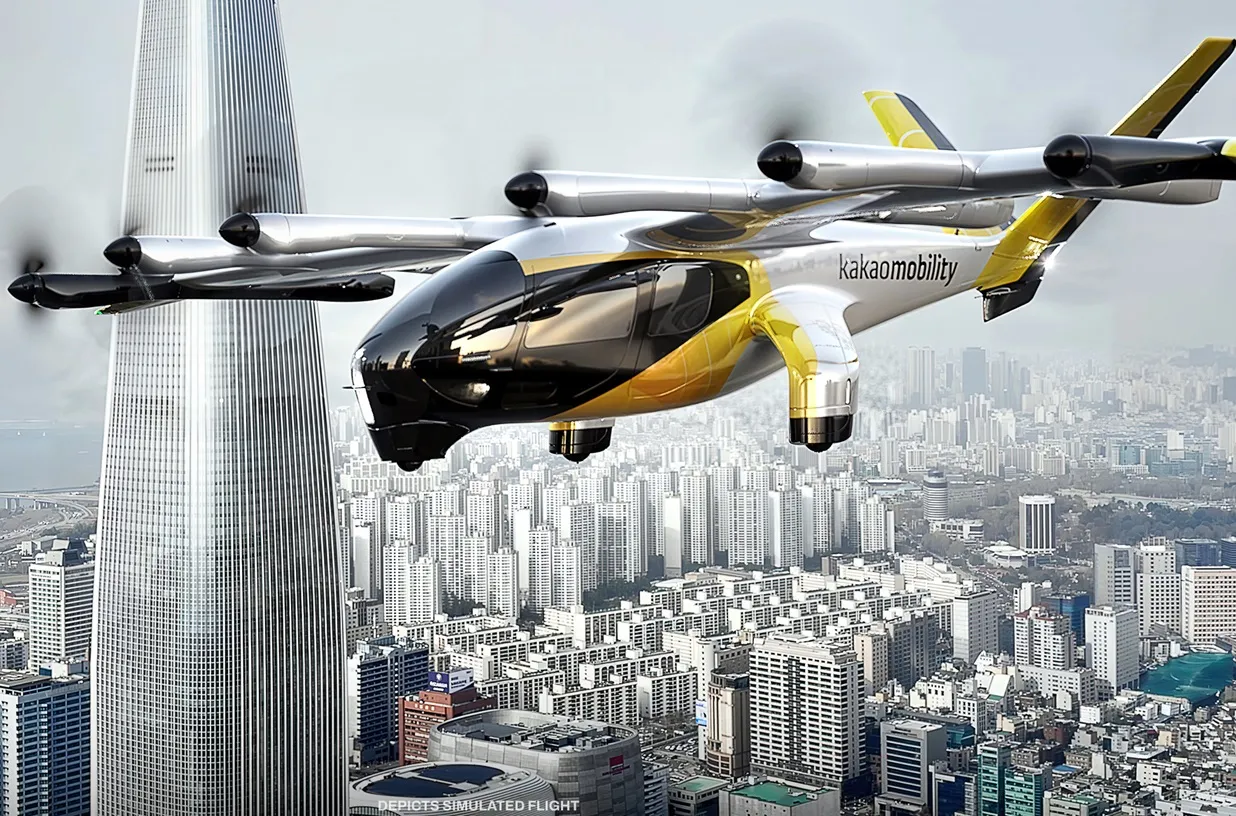
South Korean taxi-hail specialist KakaoMobility plans to offer Archer Aviation's electric vertical take-off and landing (eVTOL) aircraft on its app.
Seoul is the likely starting point for the new service, with public demonstration flights planned for later this year in a city where, KakaoMobility says, "the average commuter spends nearly 90 minutes per day stuck in traffic".
The company, with consortium partners LG UPlus and GS E&C, is buying 50 of Archer’s Midnight eVTOL aircraft, worth up to $250m. They will take part in the K-UAM Grand Challenge, a demo program launched by Korea's Ministry of Land, Infrastructure and Transport to test the safety and efficiency of urban air mobility.
KakaoMobility says it has 30 million registered users and will offer them electric air taxi rides as early as 2026.
Christopher SungWook Chang, senior vice president of KakaoMobility, called it a "leap forward for urban mobility".
"The vision is clear – reduce the hours lost in traffic and elevate everyday travel with an electric air taxi service."
Archer chief commercial officer Nikhil Goel explained that South Korea represented an expansion of its international launch strategy.
The consortium’s companies will try to demonstrate how eVTOL aircraft can transform commutes in Korea and will build infrastructure such as vertiports and air traffic management systems.









